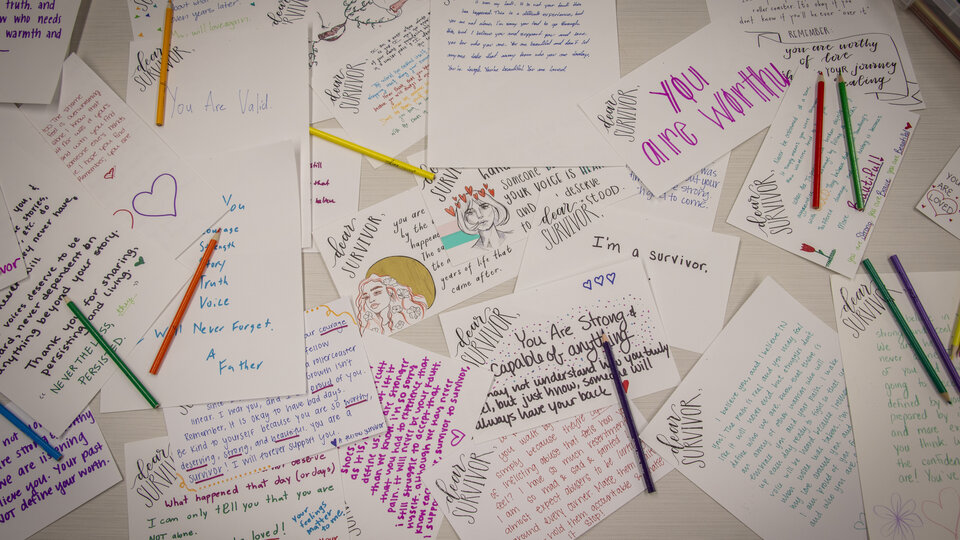There may come a time when a friend will disclose to you that they have experienced sexual or relationship violence. It can be shocking, and may be hard to know what to do or say. Here are some tips that might be helpful if a friend discloses to you.
- Listen: Let your friend tell you their experience in their own words, at their own pace. Let them decide how much information and what information they are ready and willing to share.
- Believe: Tell your friend that you believe them and let them know that what happened to them is not their fault.
- Connect with resources: There are many resources on campus that can help a survivor with issues related to safety and well-being.
Center for Advocacy, Response & Education (CARE)
We encourage survivors to consider starting with a confidential CARE Advocate. Advocates can help them navigate and understand different options and resources. Learn more about how an Advocate can support survivors.
Counseling and Psychological Services (CAPS)
CAPS offers 24/7 crisis services with an on-call counselor. Call CAPS at 402) 472-7450 and press “4” to speak with the counselor on duty at any time.
The health center provides SANE (sexual assault nurse examiner) exams and can provide care after an assault.
- Support: Your friend may not be ready to make decisions yet, or they may not make the decision that you think is best. It may be hard to understand, but remember that you are not in their position. It’s important that survivors be able to regain some control by making their own choices and decisions.
- Ask: If you are not sure how to help, just ask. Ask your friend what they need from you and be honest about whether or not you can provide that help.
- Respect: Your friend trusted you with this information so it is important to respect their privacy. Please do not share their story with anyone without their permission.
- Understand: It is normal for a traumatic event to cause people to act differently than usual. For example, your friend may laugh at something very serious, or sleep more than usual. Try to be patient and understanding.
- Take care of you: It can be difficult being the person your friend trusted with this information. You might want to process this experience with a CARE Advocate or a counselor at CAPS. We support those who support survivors. Reach out to us to talk with an Advocate. It’s important to take care of yourself, too.
You may have trouble finding the right things to say to your friend, or you worry about saying the wrong thing. Making mistakes is okay – apologize and try to learn from the mishap.
Sexual and relationship violence is never the fault of the survivor. There are some common questions well-intentioned people may ask survivors that can make them feel as if they did something wrong, or are at fault. In order to help you avoid this, we have provided some of these questions that may send a message that does not match your intent.
Avoid saying:
“How much did you have to drink?”
“What were you wearing?”
“Did you fight back?”
“Why didn’t you yell for help?”
“Why didn’t you call the police right away?”
“Why did you go home with them to begin with?”
“Why did you wait to tell someone?”
It is normal for you to have feelings, emotions, opinions, or questions. However, it’s important that you don’t blame the survivor, even inadvertently with your comments and questions. It is just as important that you pay attention to how you are feeling and reach out for help with processing what you’ve experienced.
CARE services are not just for those who have experienced interpersonal violence, but also for those who may be supporting a friend or peer who has been impacted. If there are situations you are unsure how to handle or are struggling with how to be supportive, fell free to reach out. CARE can provide insight and information on supportive measures.
CARE is Here to Help
Connect with CARE:
Call or email us during the hours of 8 a.m. to 5 p.m., Monday through Friday, to set up an appointment.
Advocates can meet in-person, over the phone, or via Zoom- the choice is yours!
